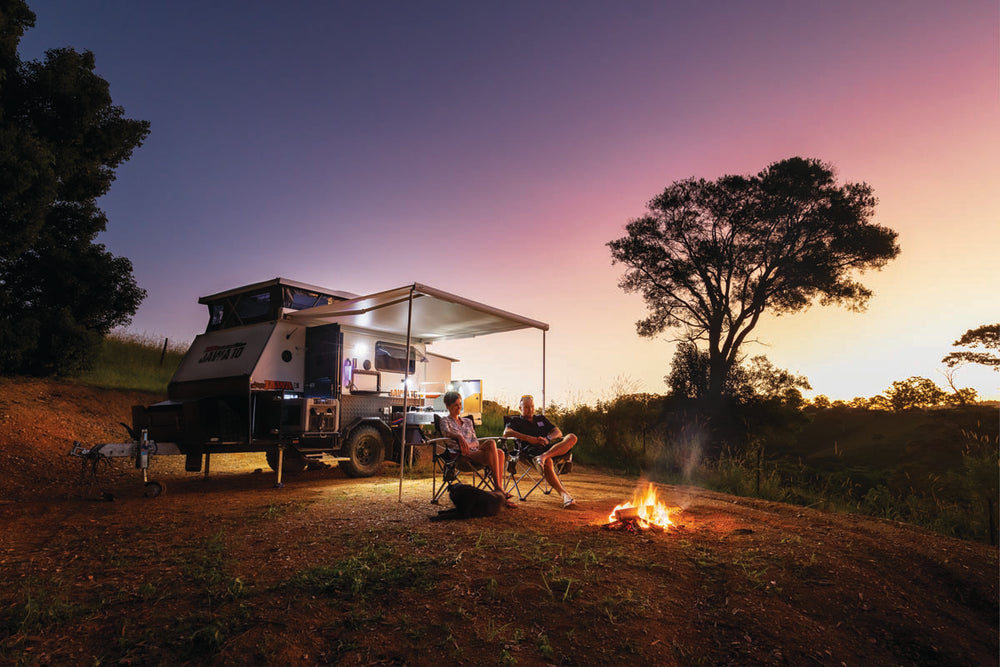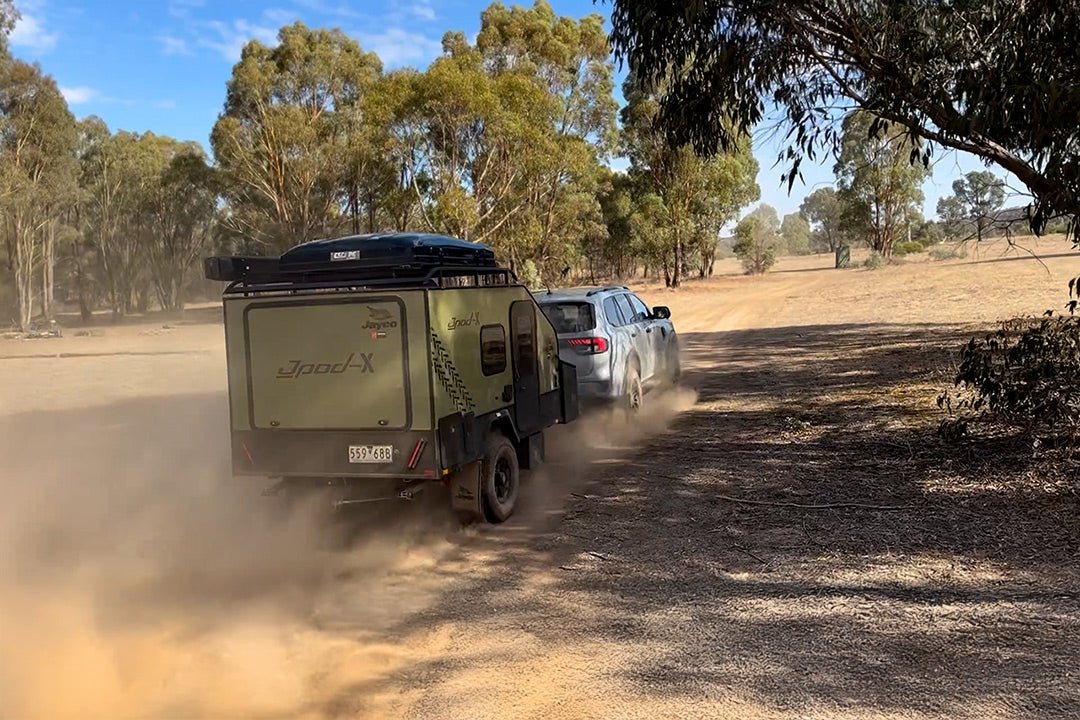Moolah on the move
The current economic climate isn’t doing anyone any favours, least of all if you’re a retiree. If your wealth depends on investment returns, the 50 per cent plunge of the All Ordinaries Index over the last 12 months has put a serious dent in proceedings. And if you’re the cautious type, with money stashed in low-risk savings, the falling interest rate is bad news as well.
It appears that people are postponing their travel plans or aren’t going as far away as they used to – in spite of fuel prices suddenly dropping to a three-year low.
There’s no denying that these are uncertain times, but that doesn’t mean we should retreat into our shell and huddle in front of the plasma screen while we boost sales of baked beans and thick soups. In fact, now could be the perfect time to take to the road and enjoy quieter surroundings and cheaper deals as the tourist industry struggles to cope with falling demand.
This is not as crazy as it sounds.
A few simple money-saving techniques can help your dollar go further on the road – obvious things such as maintaining a relaxed cruising speed, not always insisting on fully serviced accommodation, and doing most of your own cooking, to name the three major expense areas. Wait, there’s more...
SETTLING IN
It’s also relatively easy to earn money along the way, which may come as a surprise to some but is a well-known fact among many grey nomads. If you find a place you like, why not settle in at the caravan park and enter the local workforce for a few weeks or even months? Local Centrelink offices usually have dozens of vacancies on their books, often on a casual basis. Local papers and supermarket notice boards will list positions vacant, and if you ask around at roadhouses and caravan parks, chances are they’ll be looking for temporary staff.
Often they’ll prefer mature-aged couples with their own accommodation, who are likely to be more reliable than impulsive foreign backpackers with low thresholds for boredom. (Let’s face it, the romance of selling fuel and snacks at a remote roadhouse or cleaning cabins at a caravan park in central Qld/NSW/WA/SA/Vic soon wears off.)
Popular national-park campsites often look for campground hosts in the high season, and mature-aged couples are definitely at an advantage here. In most cases it’s volunteer work but the camping is free and you meet lots of people – enter “campground host Australia” into Google and see where it takes you.
OPPORTUNITIES
At the risk of stating the obvious, we still live in a land of opportunity, even if we don’t always recognise the opportunities that stare us in the face. When I arrived in Australia with my motorcycle on a ship from Bangladesh 25 years ago, I spent two years working my way around the country before finally settling in Melbourne. Along the way I sold flowers, painted a house, drove a truck for a demolition company, managed a video-games arcade, worked as a relief teacher and bartender (simultaneously), and ended up with a job-for-life with Queensland Rail in Townsville after I saw a “staff wanted” sign at the train station (and became the first candidate ever to achieve a perfect score in their then ridiculously simple dictation and maths tests).
Admittedly I was a bit younger then, but the point is that I didn’t have particular skills or relevant work experience apart from a truck licence, a never completed apprenticeship in fishing-trawler engines, and a rather useless Modern History degree from a foreign university – yet I was never without work for more than a week. Coming from Europe, I couldn’t believe it.
CW field editor Malcolm Street says, “I have seen travelling musicians, travelling bush poets (believe it or not), travelling masseurs (of the conventional kind!), photographers and consultants of various kinds. One in particular I remember was a man who in a previous life ran a computer/software business but sold it because of stress. He now wanders the country in a Swagman consulting wherever he goes to the multitude of RVers who are having problems with their laptops, email, satellite TVs, etc.”
Referring to a recent story in our sister publication Motorhome World about a couple who printed signs and embroidered caps and towels, Malcolm adds, “I have seen several other motorhomers who do similar things. Basically they go not only to caravan and motorhome rallies but also regional and rural shows and just set up their ‘workshops’ for a few days.”
An example that springs to mind is a 70-something mechanic I met at a caravan park in the Kimberley, WA, who set up shop from the back of his motorhome with welding gear for a couple of weeks and did a roaring trade fixing vehicles that had just come up the Tanami, the Canning or the Gibb or back from the Bungles. A few days later I bumped into a couple at a bush campsite who were travelling around WA with their offroad van, looking after those rubber strips across roads and tracks that count passing traffic (Main Roads WA used to enlist couples with mobile accommodation for this sort of thing).
CW contributor Collyn Rivers, who lives on a bush block north of Broome, WA, says, “One sees any number of such travellers as they pass through Broome. These include masseurs, knife sharpeners, mini circus acts, a man who makes pottery stuff (and has a kiln in his van), and people who run book-exchange services for a fee (I fear her main turnover is Mills & Boon). Also of course those who do the markets.”
JOBS IN DEMAND
Tradespeople and professionals are keenly sought after – welders, plumbers, sparkies, chippies, mechanics, teachers, nurses, doctors, cooks and accountants can essentially write their own ticket as they travel around the country. (Wordsmiths who know grammar and spelling are in demand too: our Motorhome World columnist Ian Cutler thought he’d earn some cash with a spot of freelance sub-editing at a regional newspaper in WA and suddenly found himself appointed chief of staff!)
Collyn concurs: “Many stations seek cooks, etc., and there’s always work for good bush mechanics and welders, etc. It’s usually easy to obtain work if one has a country background (far more useful at doing stuff than townies).”
However, he adds, “From the other end of this (we often have a need for people to do work on our property in the Kimberley), you have to be realistic about what you claim to be able to do. In the past two years we’ve sought people to assist in clearing the bush. This is always strenuous work and it’s often in temperatures of 30 degrees or so. Even though we spell out exactly what’s needed, we had one fellow turn up in a wheelchair and others who had no concept whatever of physical work.”
Speaking of physical work, it’s perhaps worth pointing out that fruit-picking, which many people think of when they talk about casual labour, works on a piece-rate basis and only begins to pay off as you gain experience. But even so, and even though it can be quite physical, you don’t have to be young to make it worth your while. A 60-something cyclist I met at a national park campsite in Tas had been pedalling and picking his way around Australia for years, timing his itineraries so he went from one seasonal harvest area to the next.
So, there are many ways to earn a bit of cash as you travel around the country. And by doing this, you get to meet people and experience local communities in a way you never would if you were just passing through.
INFORMATION SOURCES
When looking for casual work, try local Centrelink offices, consult local newspapers and notice boards at supermarkets and libraries, ask around at roadhouses, caravan parks, RSL clubs and the like, talk to locals and fellow travellers, and keep your eyes peeled for “staff wanted” signs.
Visit www.workaboutaustralia.com.au and buy the book and/or join the club. The “Jobs Galore” section on the website lists many casual vacancies that target mature travellers in particular.
Another useful site can be found at www.greynomadsemployment.com, which is aimed specifically at grey nomads travelling in regional Australia and employers looking for same. It also provides information on topics such as taxation, superannuation and legal services that can prove difficult to find while on the move - Rob van Driesum.







